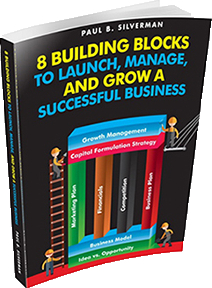Books
What Others are Saying | Read Excerpts
“Equity crowdfunding is changing the rules to secure financing for new ventures. The book reviews the rapidly changing regulations for equity crowdfunding and the implications and opportunities for entrepreneurs and investors…” Paul B. Silverman
RELEASE DATE AUGUST , 2020
Crowdfunding Regulations Are Moving Quickly
Rewards-based crowdfunding enables investors to participate in a project, maybe help a company develop a new product, build a new business or expand an existing one, create a new film or art project, maybe open a craft beer brewery, or virtually any other project you can envision. In return, investors may receive a reward which is defined by the company upfront.
This model clearly is popular and successful. In 2014, Kickstarter, a leading crowdfunding firm, attracted 3.3 million investors who pledged more than $500 million (about $1,000 a minute according to Kickstarter), and funded 22,252 projects. And there are other successful crowdfunding players such Indiegogo among others.
Traditionally, acquiring stock in private companies is limited to institutional (private equity or venture capital firms) or accredited investors through a private placement, often using a “Regulation D” structure. Crowdfunding is changing the rules, potentially allowing anyone, with some restrictions, to invest in early stage companies.
The new regulations are now opening the door to equity-crowdfunding, enabling entrepreneurs, with some restrictions, to raise equity capital. The emerging regulations will, hopefully, provide the framework to enable growth of what I and many others believe will be a trillion-dollar industry helping small business and entrepreneurs.
Crowdfunding Regulations Are Evolving Driven By The SEC And States
Title III of the JOBS Act, signed into law on April 2012, mandated that, within 270 days, the SEC was to issue crowdfunding regulations allowing companies to raise equity capital from individual investors. The SEC objective was to both create a crowdfunding structure enabling early stage companies to attract individual equity investors with minimal overhead, and at the same time to ensure investors are protected from fraud through appropriate disclosures. The new rules would enable a small business, using an online crowdfunding web site portal, to apply for and raise up to $1,000,000 by selling stock in their company.
The SEC missed the mandated January 5, 2013 deadline and finally issued proposed crowdfunding rules for comments on October 13, 2013. Recognizing the opportunity, states however are moving quickly to fill the gap.
State Crowdfunding Programs Are Moving Quickly
The states are also moving quickly to implement their own state-based crowdfunding options which are a powerful tool to attract business to their state, create a “business-friendly” environment, and spur economic development.
As of late 2014, 27 states had new equity-based crowdfunding regulations in progress, with about 13 now approved. Developments are moving quickly here and numbers are changing frequently. States are also competing on terms and degree of regulatory oversight for equity-based crowdfunding.
Look at Texas, for example, where a company can raise up to $1 million a year through an approved Texas crowdfunding portal. Any resident of Texas, regardless of income or assets, can invest up to $5,000 per company. But Texas residents who are accredited investors, may invest any amount. By contrast, Minnesota’s proposed equity-based crowdfunding rules (“MNvest”) allow issuers to raise up to a $5,000,000 if they have independently audited financials, or $2,000,000 if they do have audited financials. This is higher than the respective levels of $2 million/$1 million limits in most other states.
A review of current and upcoming equity-based crowdfunding regulations and structures shows wide variation on terms and conditions among the states. How the SEC and state rules relate, for example, to ensure investors are protected against fraud and misrepresentation still lies ahead. You can expect to hear arguments for “pre-emption” as both the SEC and states make their case on who should play the lead role in the equity-based crowdfunding arena.
Crowdfunding: Implications and Opportunities for Entrepreneurs
Equity-based crowdfunding is an exciting new investment vehicle that I believe will have a major impact on how early stage companies secure capital to grow their business. And crowdfunding will also create new opportunities for investment firms and investors seeking to play a role in today’s crowdfunding revolution.
I see many implications and opportunities here. While the following are still subject to legal review and the final crowdfunding regulations, let me share five implications and opportunities I foresee here:
- Entrepreneurs should consider equity-based crowdfunding as another option when developing a capital formulation strategy. The alternatives are accelerating and the outlook is positive. Your competitors will be looking at these options and you must also.
- Entrepreneurs need to be creative when using crowdfunding to finance operations. The following is not legal advice but is offered to show some of the potential new opportunities that may be emerging. . Suppose you need to secure financing for a major production, distribution, or assembly operation. You may want to establish a separately funded subsidiary to support this operation. Your company will fund the subsidiary, but you may be able to attract crowdfunding minority investors holding an equity position in the subsidiary. Using state-based crowdfunding rules, you may be able to select a state with favorable terms for your business and where you meet their crowdfunding statutes. When SEC crowdfunding rules are finalized, entrepreneurs will have even more options.
- Related to the above, some sectors, such as healthcare, financial services, and analytics can be organized with “state-centric” strategic business units within a national corporate structure. Each of the state-centric business units may be able to use state-based crowdfunding to support capital needs. The local business units secure the added benefit of creating a local investor community, which may provide other benefits to help grow the business. This is a model I find particularly attractive for ‘region-centric ‘ opportunities.
- Equity-based crowdfunding will create new opportunities for bankers, attorneys, and advisors helping entrepreneurs navigate through the crowdfunding process.
- Managing and certifying investor and company information via the proposed web-based crowdfunding portals and “venture exchanges” will create new scalable business opportunities. Based on similar work I have done in the healthcare sector, the “certification” market may be a good fit with insurance firms and foresee several structures whereby insurance firms, given the right revenue and cost ratios, may play a role provide crowdfunding investors with a level of assurance concerning their investment.
What You Will Learn Reading The New Crowdfunding Opportunity For Entrepreneurs
-
What is crowdfunding and what are the benefits?
-
How does crowdfunding work- what is a sample proposal and structure?
-
How is the JOBS Act driving the new crowdfunding regulations?
-
What is the outlook and structure for the SEC crowdfunding regulations?
-
What is the status of state-based equity crowdfunding programs?
-
How do the state-based crowdfunding programs vary based on terms, maximum offering, conditions?
-
What are the web- portals and Venture exchanges used for crowdfunding and how will these work?
-
What is the projected outlook for crowdfundnig given the changing regulatory environment?
-
What are the implications and opportunities for entrepreneurs, investors, advisors?
-
What are the crowdfunding opportunities for international firms?
-
… and more
 The New Crowdfunding Opportunity For Entrepreneurs
The New Crowdfunding Opportunity For Entrepreneurs
Provides entrepreneurs with an overview of new equity crowdfunding regulatory developments, new state crowdfunding regulations and outlook, and implications and opportunities for entrepreneurs.
Author: Paul B. Silverman
Publisher: Gemini Business Press
ISBN: 978-0 9835374
Number of Pages: 95
No. of Chapters: 12
Kindle Edition $2.99
RELEASE DATE AUGUST , 2020
================================













